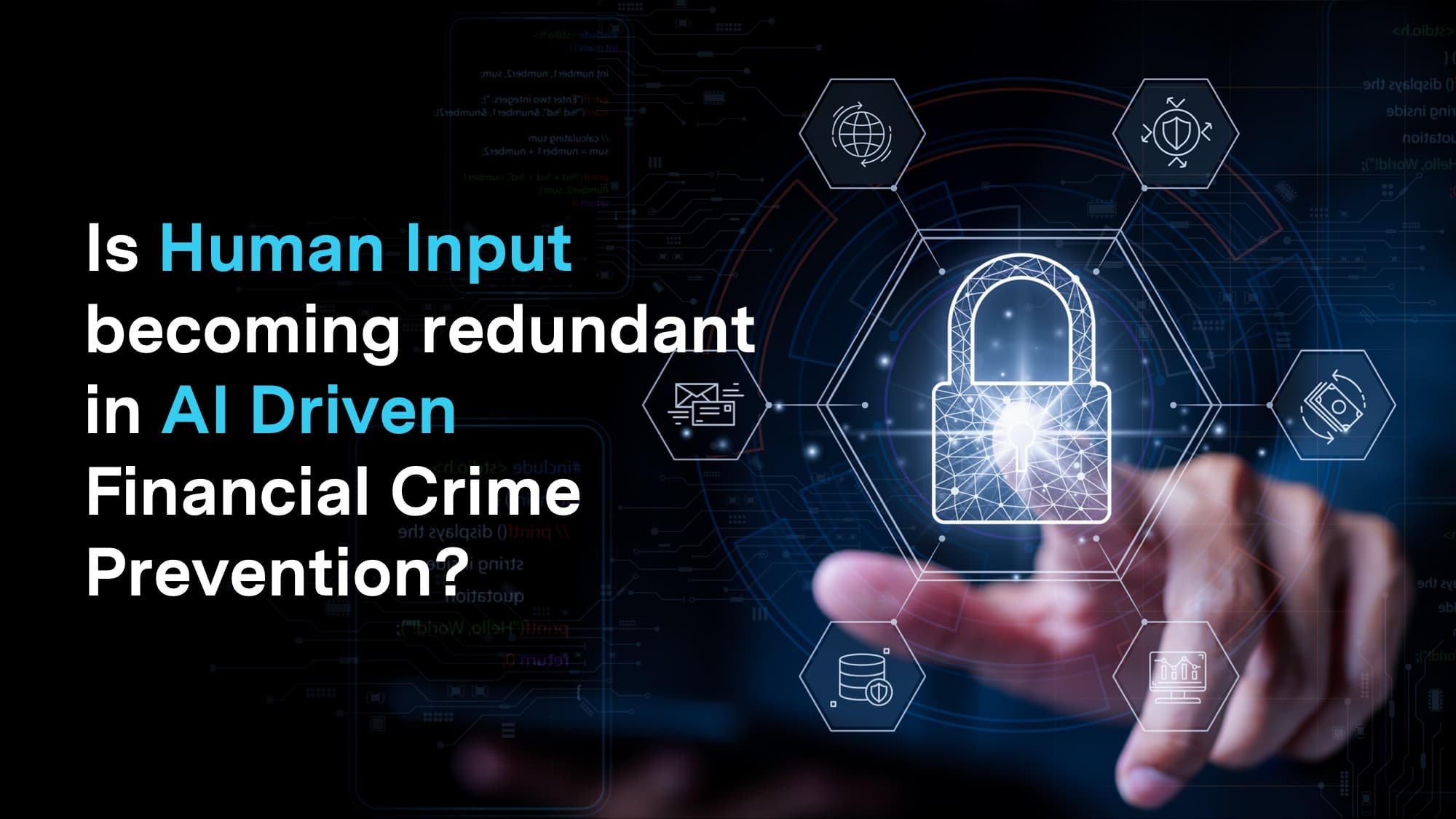Is Human Input becoming redundant in AI-Driven Financial Crime Prevention?
In the rapidly evolving landscape of financial crime prevention (FCP), artificial intelligence (AI) has emerged as a transformative force, automating tasks, detecting anomalies, and enhancing risk mitigation strategies. However, amidst this technological revolution, a crucial question arises: Is human input becoming redundant in AI-driven FCP?
AI has undoubtedly revolutionised FCP, enabling financial institutions to analyse vast datasets, identify suspicious patterns, and flag potential red flags with remarkable speed and accuracy. This automation has streamlined FCP processes, reduced manual errors, and freed up compliance teams to focus on higher-risk cases. However, AI is not a panacea for financial crime prevention.
While AI excels in data-driven pattern recognition, it lacks the human element of contextual understanding, nuanced judgement, and ethical decision-making. These are precisely the qualities that make human expertise indispensable in FCP.
The Enduring Value of Human Expertise
Skilled professionals in FCP provide the contextual understanding, nuanced judgement, and ethical considerations that are critical for effective financial crime prevention. They possess a deep understanding of the regulatory landscape, the intricacies of financial transactions, and the modus operandi of criminals. This expertise allows them to evaluate AI's alerts with a critical eye, identifying false positives and recognising genuine risks that may have been overlooked by the algorithms. For example, in addition to the machine-generated pattern recognition alert, the detection of genuine insurance fraud requires an insurance specialist who knows the customer and their environment personally. This is essential for a comprehensive clarification of a case.
Furthermore, human judgement is essential in navigating the ethical dilemmas that arise in FCP. AI systems, by their nature, operate based on predefined rules and algorithms. They may not always consider the ethical implications of their actions, such as the potential for false positives to damage customer reputations or the need to balance risk mitigation with maintaining customer satisfaction.
AI as an Enhancer, Not a Replacement
The true strength of AI in FCP lies not in replacing human expertise but in augmenting it. AI serves as a powerful tool, providing insights and alerting human experts to potential risks that they may not have identified on their own. Human experts, in turn, provide the critical evaluation, judgement, and ethical considerations that are essential for effective FCP.
Striking the Right Balance
The future of FCP lies in a synergistic relationship between humans and AI, where each complements the other to create a robust and effective defence against financial crime. This synergy requires a commitment to:
Continuous Human Upskilling: Financial services professionals must stay abreast of the latest AI advancements and develop the skills to effectively interpret and utilise AI insights.
Ethical AI Implementation: Financial institutions must ensure that AI is implemented in a responsible and ethical manner, prioritising data privacy, fairness, and transparency.
Human-AI Collaboration: Fostering a culture of collaboration between human experts and AI systems, leveraging the strengths of both to achieve optimal FCP outcomes.
Conclusion
In conclusion, human input is not becoming redundant in AI-driven FCP; it is becoming increasingly essential. Human expertise provides the contextual understanding, nuanced judgement, and ethical considerations that are critical for effective financial crime prevention. AI serves as a powerful tool, augmenting human capabilities and enabling compliance teams to operate with greater efficiency and precision. The future of FCP lies in this synergistic relationship between humans and AI, where each complements the other to create a robust and effective defence against financial crime.

